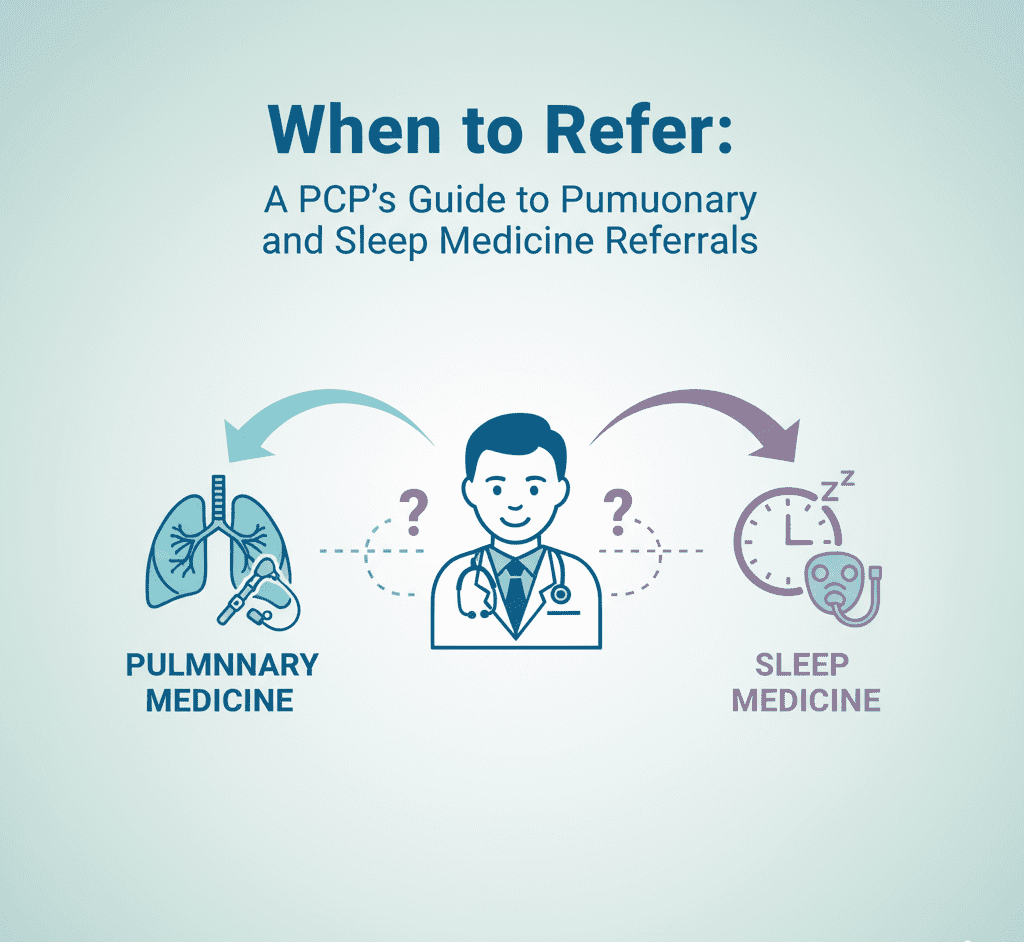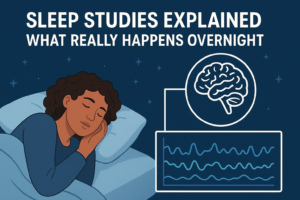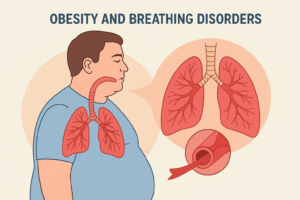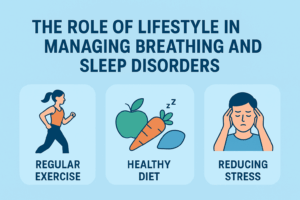
Primary Care Providers (PCPs) are commonly the first line of defense when it comes to recognizing problems that call for a pulmonary or sleep medication specialist. But when exactly is the correct time to make a reference? This overview simplifies so you can ensure your individuals get the specialized treatment they require– whether it’s for asthma, COPD, rest apnea, or seasonal allergic reactions.
🚨 When to Refer to a Pulmonologist
PCPs ought to consider a reference if clients existing with:
-
Chronic cough lasting more than 8 weeks
-
Unexplained shortness of breath even after initial management
-
Frequent or severe asthma attacks despite inhaler use
-
COPD exacerbations that don’t stabilize with standard therapy
-
Abnormal chest imaging requiring expert interpretation
👉 Utilizing the search term “best pulmonologist near me”, patients typically come down on professionals that can use advanced diagnostics like lung function testing, bronchoscopy, and lasting condition management.
😴 When to Refer to a Sleep Specialist
Sleep disorders are commonly underdiagnosed. Refer individuals if they report:
-
Loud snoring with stops briefly in breathing (classic for rest apnea).
-
Excessive daytime tiredness in spite of “sleeping” 7–8 hours
-
Trouble dropping or staying asleep (persistent sleeplessness).
-
Restless leg experiences interrupting sleep.
-
Observed apneas by a bed companion.
Many people ask online: “How to recognize if I have rest apnea?” The gold criterion is a sleep study (in-lab or in your home) bought by a board-certified sleep doctor.
🌸 Seasonal Allergy Relief & Referral Considerations
While a lot of allergies can be handled in primary care, recommendation is recommended for:
-
Patients with year-round or severe seasonal allergies
-
Those who do not improve with antihistamines or nasal sprays
-
Individuals with allergy-triggered asthma
A trending search query is “seasonal allergy relief tips.” While tips like saline rinses, air purifiers, and antihistamines help, a specialist can provide allergy testing and advanced immunotherapy.
🙋 Patient FAQs (from Google’s “People also ask”)
Q: What does a pulmonologist treat?
A pulmonologist specializes in lung problems such as asthma, COPD, pneumonia, and sleep-related breathing problems.
Q: Do I need a referral to see a pulmonologist?
Most insurance plans call for a PCP recommendation, however some allow straight booking. Constantly check your protection.
Q: What kind of doctor should I see if I think I have sleep apnea?
A sleep medication doctor (commonly likewise a pulmonologist) can order a sleep research and provide CPAP or alternate therapies.
Q: Can allergies affect my lungs?
Yes. Neglected allergies can cause asthma and cause persistent respiratory issues, making expert referral vital.
✅ Final Takeaway for PCPs & Patients
Timely referrals to pulmonology and sleep medicine can improve outcomes, prevent complications, and enhance quality of life. Whether it’s sleep apnea, chronic lung disease, or stubborn allergies, the right specialist can make all the difference.
🌟 Ready to Breathe Better & Sleep Soundly?
Looking for the highest-rated pulmonologist and sleep medicine specialist in Houston, Texas?
📞 Call us today at 832-263-1177
🖊️ New patients can book an appointment instantly here: BreatheSleepMD New Patient Forms
✨ With the best Google reviews in Houston, why wait? Take the first step toward better breathing and restful nights—your health deserves it.



